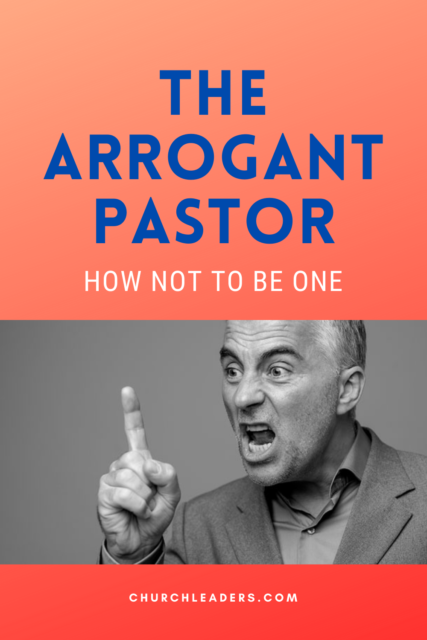The arrogant pastor. Even writing an article on this almost guarantees comments about pots and kettles. And I get that. I’m as human as you are. And if we are all honest with ourselves, we would admit that it is a struggle for each of us in some way.
However, sometimes to personally admit to our own arrogance, we need prodding. Why? Because we often become blind to our own faults.
The reason it is so dangerous, especially for those of us in ministry positions, is that it can become a cancer to our ministry. I could, and I guess you could as well, name dozens of pastors whose arrogance and pride led them to a very public, very shameful, fall.
Arrogance stifles mission. It redirects the focus of our ministry to us instead of to a kingdom focus. And if left unchecked, our ministry will begin to exist for its purpose, not God’s purposes.
So what should we look for in our ministry as a sign that we could be headed down a very long, hard road? Here are five warning signs Jonathan Howe and I listed. You might have more, and I invite you to share them in the comments below.
How Not to Be an Arrogant Pastor
1. Elitist Mentality: Your church is the only one you know doing things the right way.
This arrogant pastor has seen some growth in the church because of a program or a new method. So the pastor tells everyone that the only way for their church to grow is to copy what they have done. And when they choose not to because it might not be what their church needs, they are written off as an ineffective church. Just because something works at one church doesn’t mean it automatically will at another.
Or … another arrogant pastor refuses to use anything the “big church” down the road is using. Even when members are leaving, the pastor refuses to change methods or adapt to the changing culture around the church.
There is nothing wrong with trying new things in your church. Especially if you are plateaued or declining. But doing what everyone else is doing is not always the answer either. Find what works for your people. Serve them well. And if you see success, don’t think you have cornered the market on what works in every other church.
2. Theologically Superior: You won’t read authors from outside of your own theological stream.
This arrogant pastor only reads recent heroes of the faith. The ones who think the same way, dress the same way, write the same way, talk the same way and blog the same way. The result is that the pastor becomes a theological clone; donning theological blinders and refusing to even consider or examine other perspectives on theology.
Fight this by reading a lot and reading people with whom you don’t always agree. And read authors who are dead. Contemporary authors are very helpful and have written some great works in recent years, but read the classics too. Read Lewis and Calvin and Wesley and Edwards and Augustine. Your theology might not change, but you will become much more informed about it as a result. Be a lifelong learner.


